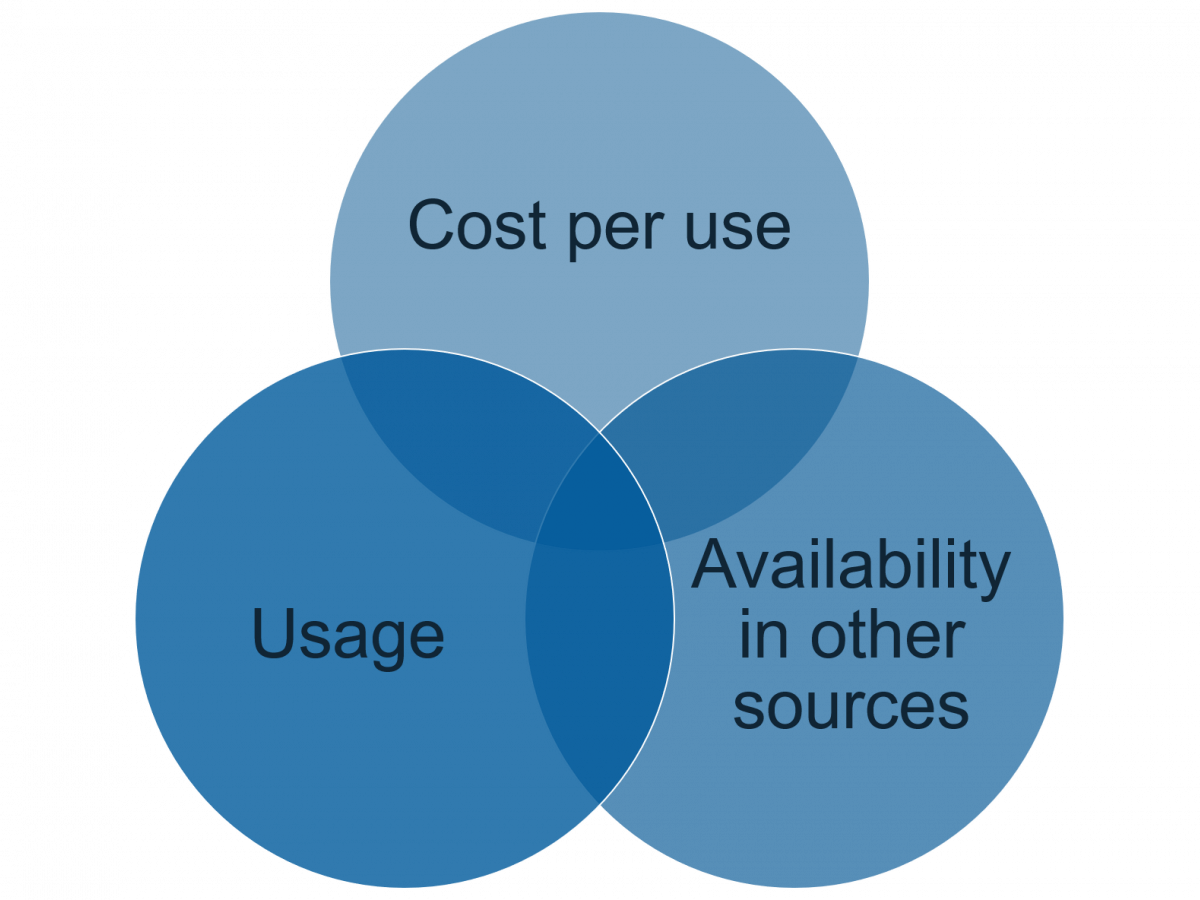Collection Development
How does the Library decide what to collect, given the array of material available and diverse needs of the University's teaching and research activities?
The principles and guidelines below inform and shape the Library's collection development decision making.
-
Collection development principles
The Library will:
- Manage a single integrated collection of electronic and physical resources including learning objects and digitised materials, across all sites.
- Acquire resources that meet the learning, teaching and research needs of the University.
- Apply just-in-time acquisition processes wherever possible.
- Evaluate the collection regularly for relegation and disposal.
- Employ usage and return on investment measures to evaluate subscribed resources.
- Prioritise availability of undergraduate learning and teaching requirements.
- Preference electronic formats to enhance access to the collection independent of time and location.
- Actively consult with the University’s teaching and research communities to determine collection priorities for each discipline area.
- Avoid unnecessary duplication of resources.
- Supplement collections by providing access to Interlibrary Loan and document delivery services for academic purposes.
- Acquire material for the Rare Books Collection according to the Principles set out in the Rare Books Collecting Plan 2022-2024.
-
Selection process

The University Library will be conducting an ongoing, rigorous, analysis of subscriptions holdings, particularly electronic databases, to identify titles for potential cancellation.
The process we will follow is outlined below:
ANALYSIS PROCESS
- Databases with high percentage of duplicated titles identified
- Usage in the last two years analysed
- Availability and coverage of duplicated titles in other databases analysed
NOTIFICATION PROCESS
- New cancellations and purchases will be advertised via your Liaison Librarian and the library's social media channel
Please email if you require more detailed information.
-
ePreference guidelines
The Library preferences electronic formats to enhance access to the collection independent of time and location.
Availability, price, demand, platform options, user numbers and licencing restrictions will be considered in relation to the e-preferred principle.
While every effort will be made to purchase electronic materials in preference to print materials, there will be exceptions.
Examples of possible exceptions:
- Prescribed textbooks may require one print copy to be purchased for the High Use Collection.
- Books with significant visual images may be best displayed in print format (e.g. art and architecture books).
- Special Collections and Archives may require an archival print copy in addition to an eBook.
- Those ebooks only available as part of a collection which the Library does not acquire.
- Those ebooks only available by subscription or through suppliers which do not sell to institutions.
-
Donations
The Library will be pausing the acceptance of donations of physical items to both its main circulating collections, as well as all Special Collections, until 2026. In a limited number of circumstances, exceptions to the 2024/2025 collection donation pause may be approved by the University Librarian.
-
Recommending items for purchase
- Recommendations for new purchases are welcomed from University of Adelaide staff and students.
- Recommendations should be submitted via this form.
- Recommendations will be progressed for purchase if they meet the collection development principles outlined on this page and there are sufficient funds available.
-
Any questions?
Contact the University Librarian regarding:
- University Collections Policy.
- Overall strategy and direction of the Library's collection management and development.
Contact the Associate University Librarian, Library Experience regarding:
- Adherence to Collection Policy and escalation of implementation issues.
- Oversight of collection projects.
- Implementation of collection strategy.
- Digitised collections processed for the course readings system and the institutional repository.
- Access and discovery of all collection resources.
- Physical collections at all libraries, including High Use, and off-site storage.
- Identity management and authentication.
Contact the Senior Manager, Collections & Access Services regarding:
- Collection funds management including endowment and bequests.
- Collection analysis.
- Vendor liaison and negotiation.
- Management of licenced and owned digital resources.
- Management of processes and staff associated with acquisition and access.
- Management of donations to Main print collections.
Contact the University Archivist and SpARK team regarding:
- Special Collections and Archives management.
- Records management.
- Management of donations to Special Collections.
Contact the Liaison Librarians regarding:
- Discipline specific collection related consultation and communication with faculties and students.
- Enquiries about individual database and journal titles.
